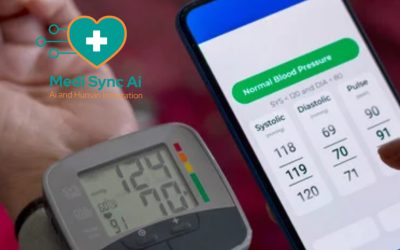Chronic diseases are among the leading causes of morbidity and mortality in the United States, affecting millions and placing a significant burden on the healthcare system. According to the Centers for Disease Control and Prevention (CDC), chronic conditions such as diabetes, heart disease, and chronic respiratory diseases account for seven out of ten deaths annually. Effective management of these conditions is essential to improving patient outcomes and enhancing quality of life.
Chronic Care Management (CCM) plays a pivotal role in addressing this challenge by offering a structured, proactive approach to managing chronic illnesses through care coordination, patient engagement, and ongoing monitoring. However, a key component of CCM is accurate CPT code billing, ensuring healthcare providers receive proper reimbursement while maintaining compliance with Medicare and insurance regulations.
Additionally, nurses are at the core of chronic disease management, serving as primary caregivers, educators, and patient advocates. Their role in care coordination, patient education, and emotional support makes them indispensable in CCM programs.
In this guide, MediSyncAI explores essential CCM CPT codes, common billing mistakes to avoid, the role of nurses in CCM, and how technology is transforming chronic care management.
Key CPT Codes for Chronic Care Management
Understanding CCM CPT codes is critical for proper billing and reimbursement. Below are the primary codes used for CCM services:
Standard Chronic Care Management Codes
These codes apply to non-face-to-face care coordination services provided by clinical staff under a physician’s supervision.
- CPT 99490 – Covers at least 20 minutes of CCM services per month, including medication management, care coordination, and patient communication.
- CPT 99439 – An add-on code for an additional 20 minutes of CCM services beyond CPT 99490.
Complex Chronic Care Management Codes
Used when patients require more extensive care coordination due to medical complexity.
- CPT 99487 – Covers at least 60 minutes of care management for patients with multiple chronic conditions requiring extensive medical decision-making.
- CPT 99489 – An add-on code for each additional 30 minutes of complex CCM services.
Physician or Qualified Healthcare Provider CCM Codes
These codes apply when physicians, nurse practitioners, or physician assistants personally provide CCM services.
- CPT 99491 – Covers at least 30 minutes of CCM services provided by a physician or other qualified healthcare professional.
- CPT 99437 – An add-on code for each additional 30 minutes of provider-delivered CCM services.
Selecting the right CCM CPT code ensures proper reimbursement while maintaining compliance with Medicare and insurance guidelines.
Avoiding Common Billing Errors
Billing for CCM can be complex, and mistakes can result in claim denials, lost revenue, and audits. Here are the most common errors and how to avoid them:
- Incomplete Time Tracking
Medicare requires providers to meet specific time thresholds before submitting claims. Automated tracking tools, such as those offered by MediSyncAI, can accurately document time spent on CCM services.
- Lack of Patient Consent
Before initiating CCM services, Medicare requires documented patient consent. This should include:
- An explanation of CCM services
- Potential costs for the patient
- The patient’s right to opt out at any time
- Duplicate Billing
Only one provider can bill for CCM services per patient per month. To prevent denials, practices must coordinate care and ensure proper documentation and tracking.
- Insufficient Documentation
All CCM services must be clearly documented, including:
- Time spent on care coordination
- Type of patient engagement provided
- Updates to the patient’s care plan
- Misuse of Complex CCM Codes
Complex CCM codes (CPT 99487 & CPT 99489) should only be used for patients with moderate-to-high complexity medical needs. Incorrect coding may lead to claim denials or Medicare audits.
The Role of Nurses in Chronic Care Management
Nurses are central to chronic care management, serving as caregivers, educators, and patient advocates. Their responsibilities include:
- Patient Education
Nurses educate patients about their conditions, treatment options, and self-management strategies. Patient empowerment is key to improving health outcomes and reducing hospitalizations.
- Care Coordination
Nurses facilitate seamless patient management by:
- Scheduling appointments
- Managing referrals
- Ensuring communication between providers
- Remote Patient Monitoring
Regular monitoring of patients with chronic diseases helps track vital signs, assess symptoms, and adjust treatment plans as needed.
- Emotional Support
Chronic conditions can take a psychological toll on patients. Nurses provide emotional support, counseling, and guidance to help patients manage stress and anxiety.
- Advocacy
Nurses advocate for patient needs within the healthcare system, ensuring access to essential resources such as transportation, nutritional counseling, and financial assistance.
How Technology is Transforming CCM
The integration of AI and digital health tools has revolutionized chronic care management. Key innovations include:
- Telehealth Services
Virtual check-ins enable real-time patient monitoring without in-person visits, improving access to care.
- Electronic Health Records (EHRs)
EHRs centralize patient records, improving care coordination and data accuracy.
- Wearable Devices
Smart devices track health metrics like heart rate, blood glucose, and blood pressure for continuous monitoring.
- AI-Powered Billing & Documentation
AI-driven platforms like MediSyncAI automate billing, documentation, and patient management, allowing healthcare teams to focus on delivering high-quality care.
Benefits of Accurate CCM Billing
For Patients:
- Improved health outcomes with better chronic disease management
- Stronger patient engagement through education and ongoing support
For Providers:
- Increased reimbursement for services provided
- Reduced administrative burden with AI-driven automation
- Lower risk of Medicare audits through accurate tracking and coding
Nurses play a vital role in chronic care management, contributing to patient education, care coordination, emotional support, and advocacy. As the prevalence of chronic diseases rises, AI-driven tools like MediSyncAI empower healthcare teams to improve patient outcomes while optimizing revenue.
Learn how MediSyncAI can streamline your CCM billing and care coordination: MediSyncAI.com





